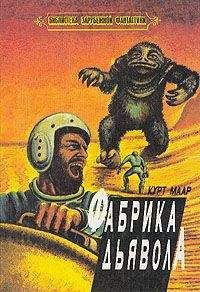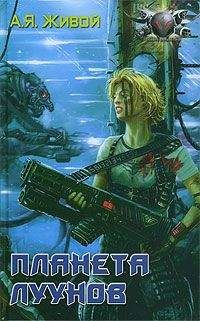Fairstein, Linda - Silent Mercy
“So what were we watching?” Mike asked.
“One of our new recruits. He’s going to fight tonight, in fact. I call him the Fury. That was some Muay Thai he was angling to do.”
“Asian.”
“The Art of Eight Limbs, as they call it in Thailand. American boxing involves two points of contact — just the fists.”
“Yeah,” Mike said.
“This lets you go at the other guy with eight points,” Kelner said, pleased with the telling. “It allows punching, kicking, kneeing, elbowing.”
“And some Brazilian jujitsu thrown in, wasn’t there?”
“You know your stuff, Mr. Chapman. Tell your girlfriend over there — she’s seeming a bit squeamish — that’s the only one likely to do more than bloody a boy’s nose. That was the choke hold you saw.”
“Full-contact combat sport.”
I whispered to Mercer, “Just ask him about the case — and a possible perp — and let’s get out of this place. It’s disgusting.”
“Oh, and some sambo,” Kelner said. He was pushing the envelope with me now, sensing my displeasure. “You know sambo? That’s one to kill with. You maybe came in too late to see the takedown.”
“What’s sambo?”
“How’s your Russki?”
“Nyet. Nonexistent.”
“A Russian acronym, Detective. Stands for self-defense without weapons — sambo, in their language.”
“Now I know what you’re talking about. It was a top-secret Red Army technique to create a deadly kind of hand-to-hand combat after the Revolution, right?”
“Entirely. Didn’t even make it to the US until recently. Focuses on getting your opponents to the ground, Detective, no matter how you do it. It’s all about submission,” Kelner said, almost gloating at the way he had suckered Mike into his pitch. “Now, is one of these martial arts how your mysterious killer works, Mr. NYPD Homicide Detective, or can I go back about the business of building God’s army?”
“No sambo, Reverend. Don’t even think there was kickboxing involved.”
The truth was we had no idea how Naomi and Ursula had become hostage to the maniacal killer. Neither body bore the bruising of the mixed-martial-arts takedown, and the toxicological tests were still days away from yielding clues.
“Then why y’all coming around my church, stirring up my men, Chapman? We’ve been scapegoated for just about everything in town, one place or ’nother.”
“You think this idea of yours is gonna fly in the big city, Rev?” Mike asked. “I can point you to more fighting fools than could fill up your benches.”
“Bring ’em on, Mr. Chapman. I’ll lead them to the Lord.”
“You know if there’s an extreme ministry anywhere near Atlanta?”
“Quite a few on the outskirts.”
“How about eastern Kentucky?”
“You bet. Kentucky and West Virginia. We’re growing like hayseed down South.”
Mike had printed out the photograph from Daniel Gersh’s driver’s license. “Ever seen this guy?”
Kelner pretended to give it his best shot. “Not one of ours.”
“How about a tall man, maybe long dark hair, his face kind of scarred with blemishes of some sort?”
Kelner thought about it but gave a firm no.
“Many other of these churches in town?”
“Not yet, Mr. Chapman. But we’ll take hold. We have a way of doing that where we’re most needed,” Kelner said. “Meanwhile, you might try across the river. We’re becoming real popular in south Jersey. And you might give some mind to being a bit more prayerful yourselves — all three of you.”
“Thanks for your help,” Mike said. “Peace to you.”
Reverend Kelner just grinned and stood his ground, making sure we were on our way.
I wondered how much blood had been mopped from the floor of the church in the short time it had been in existence. It would be a forensic nightmare for Crime Scene to try to sort out the samples if someone was actually killed in the deep recesses of the old garage.
We were halfway down the center aisle of the jury-rigged church when my cell phone vibrated in my pocket. I retrieved and opened it. The woman on the other end was trying hard not to sound hysterical.
“Alex? It’s Faith Grant.”
“Yes, Faith. What—”
“Chat called. She’s in trouble.” I could hear now that she was crying. “I wasted time ignoring your concerns and now she’s in desperate trouble.”
“What do you know? We’ve got an entire police department ready to mobilize. What did she say?”
“It was impossible to understand her. The words were all slurred. Nothing made sense. She sounded like she’d been doing drugs.”
That would have been the first step in the killer’s routine — more likely to have been administered involuntarily.
“Did you make out anything at all?”
“It was so hard, Alex. I tried to get her to keep talking, but either the cell went dead, or someone grabbed it away from her. She kept telling me she was cold.”
“Cold?”
“Yes, freezing. That’s the clearest thing I could make out.”
“Did Chat say where she was?”
“Believe me, Alex. I asked all the questions I should have. First she said something about a truck. But then she said it was a train. Everything was muddled and confused.”
I was playing with the letters of the words that Max had strung together from the Gersh papers. Train had been one of them. Truck was a longer shot. What would there be to connect the two?
“It will take us about twenty minutes to get up to you, Faith. Are you safe? Are you still at the seminary?”
“Yes. I’ve got two faculty friends with me. They know everything.”
“What number did Chat call on? Your office phone?”
“No, no. My cell.”
“Did she say who was with her? Did you ask her a name?”
“No names. She wasn’t listening to me. She was just trying to talk. A bridge. Chat said something about a bridge. Then a truck and a train.”
“What bridge, Faith? Think.”
We were out of the church now, and I was jogging behind Mike and Mercer as we ran to the car. The island of Manhattan was linked to the rest of America by bridges and tunnels. Picking the right one would be crucial.
“She didn’t say,” Faith said, trying to regain her composure. “There’s something about Chat I didn’t tell you, Alex.”
This was real life. There was almost always something the most well-meaning witness decided not to tell me. In this case, the omission was probably to protect a loved one.
“I know she’s a free spirit, Faith. Don’t worry. If it’s about drugs, it’s not a problem. We’ll find her.”
“It’s not drugs, Alex. That was never one of Chat’s problems.”
“She strikes me as gutsy. Chat had a little attitude going with Mike this morning. If she’s got some fight in her,” I said, hoping to bluff some confidence into our operation, “she’ll hang on till we get her.”
“She’s got fight in her all right,” Faith said. “My sister left Kansas because she killed a man.”
THIRTY-SEVEN
“MURDER’LL make you a black sheep in any town,” Mike said, after we excused Faith’s friends from her suite and closed the door to talk.
We had raced uptown with the siren blaring, Mercer and I fortifying ourselves for the long night ahead eating the sandwiches Max had ordered to the office before we left, while Mike drove.
“It wasn’t murder,” Faith said. “It was self-defense.”
It was my turn to get Mike to push back and let me talk. “Will you tell me what happened?”
“I should have done that this morning. There I was, worried about myself, and all the time it was Chat who was in danger.”
“You can’t go in reverse, Faith. Just tell us everything that might help to find her.”
We couldn’t know whether Chat’s abduction, if that’s what this was, was connected to her past. But if the killer was targeting pariahs, then he might have found another victim to suit his appetite.
“I’ve counseled a lot of women who’d been abused as teens. I should have seen the signals in Chat’s life, but I was too close to the situation.” Faith had dried her eyes and was trying to regain her composure.
While we talked, Mike had put the tech guys to work triangulating the cell activity from Chastity Grant’s phone. We had given them the number as we drove north to Union, and it wouldn’t be long before they could pinpoint the general location — from the signals sent to the closest surrounding cell tower — from which the call had been made.
“It was two years ago, right before Chat turned thirty. She’d been dating a guy she’d known all her life.”
Mike had called the lieutenant on our drive up to Union to ask him to pull Chat’s record — and photograph — from the state system in Kansas and the FBI crime reporting office.
“Did you know him too?”
“Yes.”
“What’s his name?”
“He’s dead, Alex. That hardly matters.”
I grimaced at her. I didn’t want resistance to my questions at this point and now she seemed to get it.
“I’m sorry, Alex. Kenny Trimble. My dad called him Trouble. Kenny Trouble. It suited him just fine.”
Mike was texting the name to Peterson. The more info we could pull up, the faster we could move.
“What happened between them?”
“They’d been dating on and off since they were kids. I think Kenny was the first guy Chat got involved with.”
I needed to fast-forward from the high-school romance, but Faith had things she wanted to say.
“He was always way too controlling, even then. Jealous and possessive. I remember a time Chat got a ride home from another boy and Kenny was jumping all over her. Still, when she ran away from home, odds were you could find her with Kenny. Off to Oklahoma for two weeks with him, my mother scared to death that we’d never see her again. Texas the next time. Like that over and over again.”
“Tell me about recently, Faith. Tell me what Kenny did.”
Kenny Trouble had fathered kids with two other women. He’d been in and out of jail for stealing and for assaulting the mothers of his boys. The pattern was as familiar to me as Mike Chapman’s blazer and jeans.
“Chat started dating a man — a really nice man named Jonas — while Ken was in jail. He was put away for almost two years, so she had a good chance for some stability. We were all so proud of her because we thought she’d broken the cycle. Never visited him once in the penitentiary, wouldn’t accept mail from him. First time ever that she got an order of protection for herself. Turns out it wasn’t worth the paper it was written on.”
If I had a dollar for each time I’d heard that expression, I could find a cure for every disease on earth.
“The day Kenny was released from prison — the very same day — he came back to town. Spent the night at his favorite bar,’cause neither of the women he’d been roughing up wanted him back. Someone told him about Chat.”
“Told him what?”
“That she was happy, I guess. That she was in a healthy relationship for the first time in her life. Had a job,” Faith said, and couldn’t help but smile. “She was even going to church.”
“And then?”
“Kenny drove straight from the bar to the little house where Chat’s boyfriend lived. At daybreak, when Jonas left for work, Kenny let himself in. It’s the kind of town where nobody locks doors, if you folks can relate to that. Chat got out of the shower and he was waiting for her right there in the bedroom.”
“They struggled?”
“No,” Faith said with a frown. “There was no struggle.”
I had violated my own strict rules, suggesting an answer rather than waiting for my witness’s words. But I was anxious to get on with the search for Chat.
“She thought she could reason with Kenny. She was in somebody else’s home, and she was mortified that she had brought Trouble — with a capital T—into it.”
“I understand.”
“So Chat calmly started to put her clothes on, trying to talk Kenny down as she did, telling him how well his kids were doing, how he could get himself a fresh start. But I think he knew better than believing he could get anybody in that town to stand behind him. That’s when the fighting began.”
“What did Kenny do to her?”
“He had taken a butcher knife from the kitchen on his way into the house. After letting Chat exhaust herself trying to make him go away, he picked up the knife from the bureau and held it against her neck. That’s when he made her undress.”
Faith stopped and took a sip of water from the glass on her desk.
“She refused at first, but then he pressed the knife against her. Not hard enough to leave any marks. There wasn’t a bruise anywhere on her body, which is one of the reasons the cops didn’t like her story at first. It’s one of the reasons they arrested her.”
“It’s good she wasn’t physically injured.”
“I’m not sure the jury agreed with that.”
“Jurors never do, Faith. Makes their job easier to see black-and-blue marks, to count the number of stitches and feel the scars.”
“The first time he raped her, he only put the knife down on his pillow long enough to lower his pants. He held it against her neck the whole time he — he, uh — penetrated. Then he stopped for a while. Used a necktie to bind Chat to the headboard. Kenny got up from the bed, found her cell phone, and readied it to dial her boyfriend. He told her what to say.”
“What?”
“Kenny told her to call and tell Jonas to come right back home. That she was scared because someone had broken into the house and she could hear him downstairs.”
“And she did it?”
“Yes, Alex. With the point of the knife held tight against her breast, she made the call. Then Kenny got on top of her again, untied her hand. Asked her how long before her boyfriend could get there from the factory. She told him eight, maybe ten minutes.
“That’s when Kenny told her his plan. That he’d be making love to Chat—‘making love’ is what he called it — when her boyfriend returned to the house. And when the guy came after him — or her — he’d stab both of them to death. No point either of them being happy when he couldn’t be. He tortured her for those eight minutes, telling her how he was going to make her die, slowly and painfully, after watching him slice Jonas into little pieces.”
“So Chat knew she was walking her boyfriend right into a death trap,” I said.
“Yes, she did. And she also knew that once again, people in town would accuse her of being the bad girl, the one who was always looking for trouble.”
“Understood.”
“Chat could hear the door open, then Jonas pounding up the steps three at a time, calling out her name. Kenny rolled onto his side and gripped the knife tight in his hand, telling my sister to smile her best smile. That’s when Chat reached down, under the bed.”



